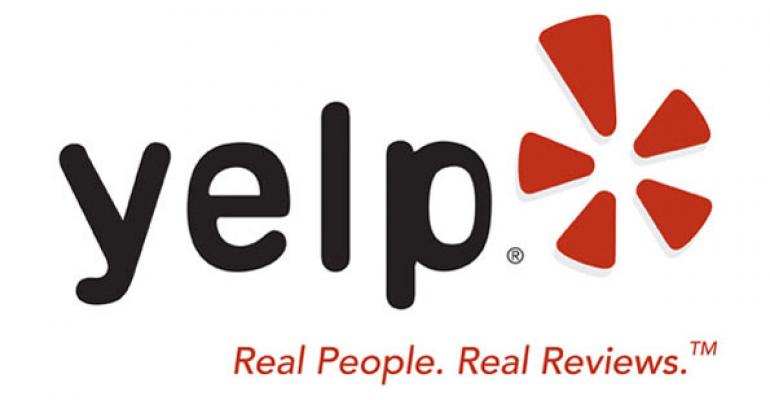There is a school of thought that any publicity is good publicity. Let’s hope executives at Yelp share that sentiment because the popular restaurant review site is again being cast into the limelight, and the reviews aren’t all that glowing.
In all fairness, Yelp in most cases is just the sounding board or middleman for battles between disgruntled diners and bitter restaurant owners. But in one case, Yelp’s marketing and advertising practices are being called into question. And in another, the company finds itself a defendant in a lawsuit asking the site to reveal information about an anonymous poster.
A brief synopsis of Yelp headlines catching recent attention:
-
After a commenter posed as a former worker at Sparks Steakhouse and claimed management encouraged staff to spit in customers’ food, the Manhattan steak joint is suing Yelp to force the site to unmask the poster. The lawsuit, filed in Manhattan Supreme Court, calls for Yelp to reveal the name and contact information of the user who posted the “malicious and defamatory” comment, which read: “I have personally spit my own saliva into dishes … Our manager actually condones it to guests who give us attitudes. Just double check your food next time you eat here.”
Accepting anonymous comments isn’t ideal for any website, but Yelp and competing review sites must think a large quantity of reviews is better than the quality of reviews, because none are verifying their users are who they say there are or even that they actually ate at the restaurant.
-
A San Francisco-area eatery fed up with Yelp’s marketing practices is alleging the review site positively manipulates the reputation of restaurants that advertise and negatively affects those that don’t. Botto Bistro co-owners Davide Cerretini and Michele Massimo have operated the Italian restaurant in Richmond, CA, for five years. Cerretini tells Inside Scoop SF that he grew tired of constant advertising inquiries from Yelp and that once he stopped advertising more negative reviews began showing up on Botto’s Yelp page. To fight back, Cerretini is on a mission to be the worst-rated restaurant in the Bay Area, encouraging all of its customers to leave one-star Yelp reviews. Some hilarious posts have ensued.
Yelp denies manipulating ratings, but even if it were to do so, there would be nothing illegal about it. The court of public opinion, however, is a different story. If enough consumers catch wind that Yelp is removing or promoting their reviews based on whether the restaurant advertises, they’ll look for alternative, more transparent review sites, which are not scarce these days.
-
The owner of SO Chinese restaurant, also in San Francisco, has had enough of trying to please everyone, both in person and on Yelp. The first sign of trouble came when James Chu closed down his shop early after serving a few especially picky diners, posting a sign that read: "We are closed because of you (customers), So...yes we use MSG, we don't believe in organic food, and we don't give a shit about gluten free." Diners took to Yelp to respond, some leaving five stars and others leaving one, with comments such as “rude" and "ignorant." Later, Chu posted a more democratic sign that read: “We work hard to please everyone, but we know we can’t. So if you’re hard to please, please just turn around and go somewhere else. Thanks.”
Most restaurant managers have been in Chu’s shoes—one or two ridiculous customer requests and you’re ready to snap. But you know one bad apple does not ruin the bunch, so you suck it up, offer a free dessert and a gift card and move on. Losing your cool and spoiling a nice meal for other diners, as well as a shift’s wages for your employees, does no good. Unfortunately, with more and more consumers reviewing their experiences online, stress levels in both the front and back of house aren’t going to decline.
Yelp turned 10 years old this year. It was early to the game, but hasn’t evolved much over the years. Other industries have embraced user-generated content and are now using online reputation management tools to learn more about their customers and better their operations to meet those needs. Amazon, for example, has revolutionized the way people comparison shop and, in a sister industry, TripAdvisor has spent as much time on business-to-business customer service as it has on business-to-customer. Yelp ought to be redesigning and building out its management tools, including alerts and management responses, otherwise it could fall right out of the limelight—this time for good.





